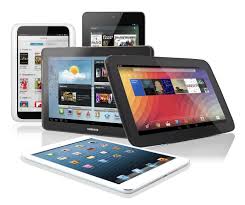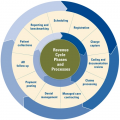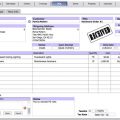Technology is expanding at an unprecedented rate and changing the way we conduct business. With the dawn of mobile phones, communication was suddenly easier and more convenient, regardless of where you happened to be. The days of having to be in your home or office in order to call someone quickly became a distant memory.
The rise of the Internet added an extra dimension to communication, allowing us to send emails and files. However, smart technology – and in particular, apps – has changed that again, meaning that the days of having to be at the same laptop in the same office are also becoming a thing of the past. But how can using smart technology help your business?

Adding a Little Brainpower
Smart technology is primarily targeted at people with mobile devices such as phones, tablets and iPads. What it does is turn your mobile device into a fully functioning, portable office suite. Many people think that smart technology simply makes certain services quicker and more efficient. While this is true, there’s a little more to the equation than speed. Smart technology adds input to those services, giving them a degree of added value. It records how you use it, adds a little brainpower and acts upon it. This isn’t to say that smart tech is a sentient form of artificial intelligence, but it can tailor your smart tech experience to suit your needs, rather like Internet cookies can recommend sites and products, based on your browsing history.
However, the main difference is that, while the Internet tends to rely on historical data to make recommendations for the present, smart technology uses historical and current data to make recommendations for the future.
Using Current Data to Predict the Future
A prime example of this is QuickBooks, from Intuit. At its most basic, this is simply an online accounting program. It can help you to manage your money, churn out invoices and keep tabs on expenses. All well and good. But by using smart technology, QuickBooks can also collate historical and current data to make predictions for your company’s financial future. In addition, Intuit has imbued the software with the capacity to act in real time. Real time information is a huge help in certain situations, such as when dealing with the tax office.
HMRC is changing the way small businesses pay tax, requiring that employers submit information every time an employee is paid. Intuit has helped to turn a time-consuming, manual process into an accurate and speedy automated one. In addition, because this is based in smart technology you can amend your documents, share your files and collaborate with colleagues from wherever you happen to be at the time.
The Way Forward
Smart technology has made communication much more convenient and easy to undertake. Conference calls can be facilitated using both audio and video from virtually anywhere in the world, documents can be amended by multiple users simultaneously, and your business can respond to changes in the market as they happen. The days of being tied to one office and one computer are soon to go the way of the landline. Smart technology is being hailed as the way forward for both business owners and their growing numbers of smart-tech-savvy customers.


















No Comments
Leave a comment Cancel